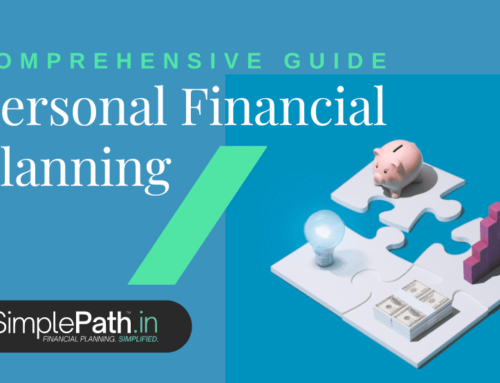In India, our fascination with gold spans centuries, deeply rooted in cultural, social, and even religious traditions. Gold holds immense symbolic value, often seen as a symbol of wealth, prosperity, and security. From weddings to festivals, gold ornaments and coins are integral parts of celebrations and rituals, representing auspiciousness and fortune. This cultural significance has ingrained the idea of gold as a reliable investment for generations, contributing to its popularity as a store of value and wealth preservation tool.
The allure of Gold Coins is reminiscent of the Chakravyuha, where Abhimanyu knew how to enter the Chakravyuha but lacked the technique to exit it. Investing in Bank Gold Coins parallels this; you enter the purchase (like Abhimanyu entering the Chakravyuha) but struggle to liquidate it later. Here are the reasons why buying gold coins from banks might not be ideal:
Higher Cost Than Market Rate:
The higher cost associated with purchasing Gold Coins from banks compared to prevailing market rates is a significant deterrent for many investors. Despite the convenience and perceived reliability of buying from banks, this premium price often remains a crucial drawback.
This markup can range from a notable 7% to an astonishing 10% over the market rate. While banks justify this price difference by emphasizing the coin’s purity, assurance, and security, the reality remains that buyers end up paying a premium well above the market value of gold.
Interestingly, when evaluating the breakdown of costs, the making charges or wastage for these coins might be considerably lower than those for jewellery. However, the premium charged by banks significantly overshadows these minimal additional expenses, resulting in a considerable dent in the investment’s potential returns.
This cost disparity becomes even more glaring when one considers the prevailing competitive market where reputed jewellers often offer gold at rates closer to the market price, with minimal premiums attached. Thus, the higher cost associated with bank-sold Gold Coins stands as a key deterrent for investors seeking the best value for their investment in gold.
Banks Don’t Buy Back Gold Coins:
The regulation that bars banks from buying back Gold Coins they’ve sold poses a significant challenge for investors looking for liquidity and flexibility in their investments. This restriction, enforced by the RBI, restricts the exit options for those who have invested in bank-sold Gold Coins.
Unlike other investments where the ability to sell or redeem plays a crucial role in investment decisions, bank-sold Gold Coins present a unique conundrum. Investors are left in a situation where they may face hurdles in liquidating their gold holdings easily.
This lack of a buyback mechanism from banks not only affects the liquidity of the investment but also impacts the investor’s ability to respond to changing financial needs or market conditions. It emphasizes the need for careful consideration before opting for bank-sold Gold Coins as a preferred investment avenue, highlighting the importance of understanding exit strategies when choosing investment instruments.
Limited Options for Encashment:
The limited options for encashing Gold Coins purchased from banks create a challenging situation for investors seeking flexibility and ease of transactions. Unlike gold bought from reputable jewellers, which often comes with the assurance of easy resale, bank-sold Gold Coins present a unique hurdle in terms of encashment.
Even with efforts to sell these coins back to jewellers or other potential buyers, the reality remains grim. The market for bank-sold Gold Coins is significantly restricted, with very few willing buyers. Even when a buyer is found, the price offered is considerably lower than the prevailing market rates. This discrepancy in valuation can significantly erode the investment’s value and frustrate investors seeking to liquidate their assets.
This limited acceptability of bank-sold Gold Coins in the secondary market creates a situation where investors might find themselves stuck with an investment that lacks the easy encashment options they anticipated. The lack of willing buyers or acceptance from jewellers further complicates the exit strategy for investors, underlining the importance of considering such constraints before opting for this investment avenue.
Inability to Trade Bank Gold Coins:
Unfortunately, bank-sold Gold Coins aren’t tradable. The trading community prefers gold coins from reputable jewellers, making bank-sold coins less desirable.
This absence of tradability restricts the investment potential of bank-sold Gold Coins, limiting their utility in situations where investors may seek to capitalize on market trends or trade their gold holdings for other investments or currencies. As a result, investors are often confronted with a narrower set of options when dealing with these coins, further emphasizing the importance of considering such limitations before choosing this investment route.
Gold Coin Investments: The Crucial Decision
A strong recommendation is to avoid buying Gold Coins from banks. If considering Gold Coins, buy them exclusively from reputable jewellers who commit to future buyback (clarify this during purchase). The drawback is that selling to a different jeweller or relocating might yield a lower value.
Regarding the assurance of buyback from jewellers when purchasing Gold Coins, this guarantee typically hinges on the trust and reputation of the jeweller. Reputable jewellers often offer written agreements or policies specifying the terms of buyback at prevailing market rates during the purchase. This commitment is part of their service to ensure customer satisfaction and confidence in their products.
However, there have been isolated instances where jewellers faced challenges in honouring their buyback promises. Sometimes, economic fluctuations or changes in gold rates significantly impact a jeweller’s ability to repurchase gold at the prevailing higher rates in the market, than that originally sold for. In such cases, jewellers might encounter financial constraints, leading to delays or adjustments in the buyback rates. Additionally, changes in the jeweller’s policies or management could also affect their willingness to buy back gold coins sold by them previously.
These occasional issues, while not widespread, emphasize the importance of dealing with established and trustworthy jewellers with a proven track record of honouring their commitments. Researching the jeweller’s reputation, seeking recommendations, and ensuring clear terms and conditions regarding buyback guarantees can mitigate such risks when investing in Gold Coins.
If you’re stuck with Gold Coins from a bank, the solution is to exchange them for jewellery. Expect substantial penalties in the form of melting charges (1.5%-2%), making charges, and wastage. Negotiation isn’t feasible here, as jewellers are aware of your limitations. Essentially, you pay a 10% premium upon purchase and discount your investment by 10%-15% upon sale—an unusual investment where you pay a premium initially and discount it upon selling.
Final Thoughts
In navigating the complexities of gold investments, it’s crucial to explore alternatives that offer both security and returns. One such avenue worth considering, especially in the Indian context, is investing in Gold Sovereign Bonds when available.
Gold Sovereign Bonds provide an attractive proposition by combining the stability of gold investments with the benefits of fixed-income securities. These bonds, issued by the government, offer a secure and convenient way to invest in gold without the concerns associated with physical holdings like storage and safety.
Moreover, Gold Sovereign Bonds often come with additional perks such as an assured interest rate and exemption from capital gains tax upon maturity, making them a compelling option for savvy investors seeking to diversify their portfolios.
Considering the drawbacks associated with purchasing physical Gold Coins from banks, exploring investment opportunities like Gold Sovereign Bonds can offer a more practical and beneficial route towards securing one’s financial future. As these bonds are periodically issued by the government, it’s advisable to keep an eye on their availability and consider them as a strategic addition to a well-rounded investment strategy.





